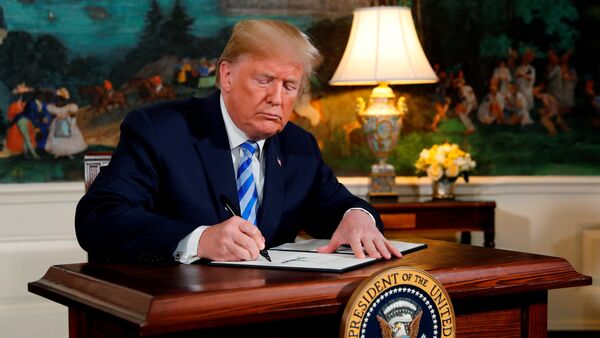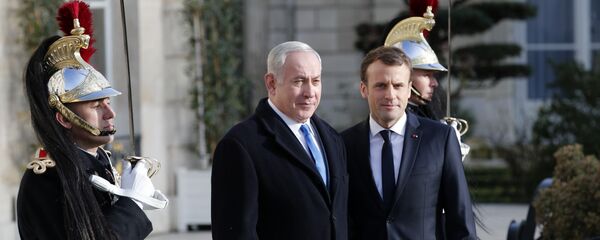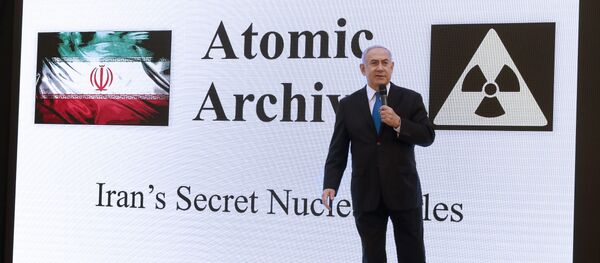The Iranian government announced Monday that it would be informing the UN's International Atomic Energy Agency (IAEA) of its intention to begin the process of increasing the country's uranium enrichment in case European nations are unable to salvage the 2015 Joint Comprehensive Plan of Action (JCPOA).
European governments have been trying to salvage the nuclear deal ever since the United States announced in early May that it would be breaking the agreement and instead pushing sanctions against Iran, which will come into effect by November.
In the letter sent to the IAEA, Behrouz Kamalvandi, spokesperson for the Atomic Energy Agency of Iran, clarified that even though it would be boosting its levels of uranium enrichment, output would still remain within the limits established under the 2015 agreement. The JCPOA permits Iran to enrich uranium up to 3.67 percent — a very low level that would be inadequate for making a thermonuclear warhead, but would still enable nuclear power generation.
Marandi told Radio Sputnik's Loud & Clear that Iran is waiting for the European Union to give an "explicit commitment that will ensure that European business and citizens are protected from the US government."
"Up to now, the Iranians feel that the Europeans are buying time and are not willing to commit themselves to preserving the JCPOA in an effective manner," Marandi told show hosts Brian Becker and John Kiriakou on Tuesday.
"So what… Ayatollah Khamenei said yesterday is that we're preparing the grounds to restart our peaceful nuclear program… Basically what he's saying is that if the Europeans don't make a clear decision to preserve the JCPOA in a meaningful fashion, Iran has no option but to go back to restarting its nuclear program in full," the professor said.
"The EU is willing to use the euro, but the problem is that many of the European companies are unwilling to continue trade with Iran without protection because they have shareholders in the United States or they use the US dollar and they can be punished by the American government," Marandi explained. "Despite the fact that these European companies are abiding [by] international law, doing legitimate businesses… they can be fined and destroyed by the US government simply because they are not abiding by US laws."
Fearing looming US sanctions, companies have already begun to pull away from business opportunities in Iran. French automaker PSA announced Monday that it would be suspending two signed deals with Iranian automakers Iran Khodro and Saipa to sell cars in Iran "in order to comply with US law."
"Unless the EU is willing to grow a backbone, unless it's willing to protect its citizens from a third party, then the Iranians are saying that the agreement is meaningless because it's fine for the Europeans to say that it's fine to do business with Iran, but if no one is prepared to do business and if everyone is too afraid to do business then they might as well be sanctioned," Marandi told Kiriakou.
When asked what Iranians thought about the current situation, the professor stated that "those who believed that Iran should do a deal with the United States have either been completely discredited or they themselves have shifted their positions."
Noting that the US hasn't always had the most relaxed relationship with Iran, Marandi pointed out that Iranian polls show the "US government literally has zero support in Iran."
Marandi noted that, by his understanding, US President Donald Trump is "more widely despised in Iran than was [former US President] George [W] Bush after the invasion of Iraq. The United States itself… its image is worse than it was under Bush."



